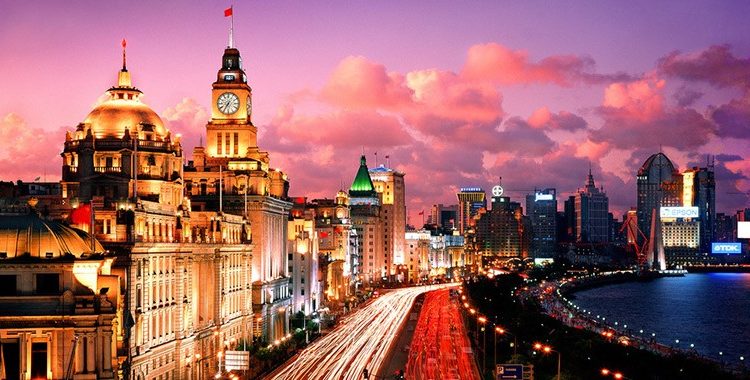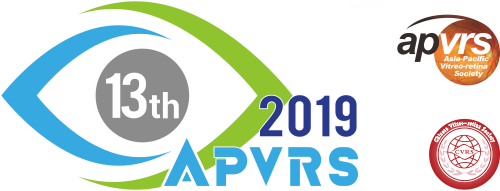About Shanghai
Shanghai is the largest city and an excellent sea port in China. Located in the middle of the east coastline, the city has links with 110 cities in 48 countries and is the gateway to China for many travelers.
Unique from other cities, Shanghai is distinctly divided into two parts by the Huangpu River: Puxi where the older part of the city exists and preserves rich cultural heritage, and Pudong which displays the modern facet and is recognized by its urban charm and extremely impressive skyscrapers, such as the Oriental Pearl TV Tower, Jinmao Building and the Shanghai International Financial Center to name a few. Both areas offer great sightseeing opportunities.
Visa Application
A passport valid for at least six months after intended period of travel is required to enter China. Currently, passport holders of a number of countries may enter China for a short period under the mutual visa exemption agreements. As of today, China has mutual visa exemption agreements with 14 countries. Under such agreements, holders of ordinary passports, other than diplomatic or service passports, are allowed to enter mainland China without visas. Participants from other countries may require a visa before departing to Mainland China. Please visit here or consult the Chinese Embassy in your country for more information.
Visa application can be made at the Chinese Embassy and Consulate. Please contact the nearest Chinese Embassy or Consulate in your country to check your entry requirements. Information of all the Chinese Embassies and Consulates is available from the website of Ministry of Foreign Affairs of People’s Republic of China.
An invitation letter of duly authorized unit will be issued to invited speakers and paid delegates by the Chinese Vitreo-retina Society upon request. Please send your request to registration@apvrs.org along with your payment confirmation email or faculty invitation. The issuance of the invitation letter may take 3-4 weeks. It is highly suggested delegates should submit the request at their earliest convenience.
Please note that the invitation letter of duly authorized unit is not a commitment on the part of the Asia-Pacific Vitreo-retina Society to provide any financial support, nor does it guarantee abstract acceptance. The issuance of a visa is at the sole discretion of the Chinese Consulate. Neither the Asia-Pacific Vitreo-retina Society nor the Chinese Vitreo-retina Society guarantees successful visa application.
It may take several weeks to process your visa application. Please apply for an entry visa as early as possible.
Shanghai locates in the subtropical zone and enjoys a pleasant marine monsoon climate. Its four seasons are distinct – hottest in July with average temperature around 28°C (83°F) and coldest in January with average temperature around 3°C (38°F). Spring and Autumn are relatively short and more comfortable.
During November, the time period when the conference is held, the average maximum temperature is 17°C (63°F) and the average minimum temperature is 7°C (45°F). It is necessary to bring long-sleeved shirts, sweaters and a coat.
For more information on Shanghai’s weather/climate, please visit:
https://www.timeanddate.com/weather/china/shanghai/ext
The international phone code of China is ‘86’ and the city code of Shanghai is ‘21’.
To make a domestic direct-dial call, callers need to dial the city code, and then the local number of the party you are calling. To make an international direct-dial call, dial international access number “00”, then the country code, then the city code (without the zero in the city code in the case of some countries), and finally the local number of the party you are calling.
Usually, local call can be made in hotels for free while the international call and the long-distance call is charged according to the rate of the carrier with extra service fee from the hotel.
Phone cards (local phone cards or international phone cards) are available at tele-company counters in the airport or in stores around the city. A phone card holder is required to install a certain amount of money in the card. The charge of your call varies, based on different SIM cards. Telephone booths on the streets are mostly for local calls.
Internet access is available in most hotels and in some cafes around the city.
Tap water in China is not drinkable before it is boiled, but bottled water is readily available in hotels, supermarkets and convenience stores.
The standard electrical voltage in Mainland China is 220 volts and the frequency in use is 50 hertz. If you are from a country, like North America and Japan, that uses 110 voltage, you need to have converters for your electric devices while traveling in China. Most laptops have converters, while for small electric devices like hair dryer, electric shaver, you are advised to bring along with a converter or use a free adapter in the hotel.
A standard socket in China has two pins on the upper part and earthed three pins on the lower part (see photo). The top socket takes a ‘Type A’ two-prong plug while the bottom socket takes ‘Type I’ three-prong plug. You may buy a portable plug adaptor at travel-supply stores or electronics stores in your local countries or in China. Most of your hotels in China offer free use of plug adaptors.

Shanghai Cuisine, also called Hu Cai in Chinese or Ben Bang Cai in narrow terms, is one of the eight major cuisines of China. Most of the dishes are relatively sweet and have a strong flavor and the bright color of soya bean sauce. Some of the most typical and favorite ones are the renowned Xiaolongbao (soup dumplings), steamed crab, fried pork buns, yellow croaker noodle soup and many more.
It is also not hard to find that some restaurants are located in historical buildings or beautifully built in a classic style. Remember to walk around the streets and alleys to explore!
The primary language of Shanghai is the dialect of Shanghainese (or called Hu dialect), although Putonghua is also widely spoken as it is the official language of China. While most hotels in the country employ staff who are fluent in other foreign languages, visitors cannot count on communicating in English with people they meet outside of tourist facilities. But many people in China, especially young people, study English and welcome the opportunity to practice with foreigners. Don’t be afraid to ask for directions in English from people on the street. You will usually be rewarded with a polite and often heroic attempt to help.
It is advisable to have addresses or instructions written down in Chinese to show to taxi drivers. All major streets have signposts in Chinese pinyin (the Romanization system for Chinese characters), which make it easier to get around with the help of a map.
The Chinese currency is Renminbi (RMB), with yuan as the primary unit and jiao and fen as the subsidiary units. 1 yuan is equal to approximately USD 0.16. Yuan, jiao and fen are issued both in bills and coins. The Renminbi features the following denominations: 1, 2, 5, 10, 20, 50, and 100 yuan; 1, 2 and 5 jiao; and 1, 2 and 5 fen.
There is no limit on the amount of foreign currency and foreign exchange bills that can be brought into China by tourists, but the amount must be declared to the customs if non-residential passengers carry more than USD 5,000 or an equivalent amount of other foreign currency. No foreign currency is allowed to circulate in China. Travelers may exchange foreign currency cash in renowned banks (like Bank of China), major airports and hotels (hotels may only exchange money for their guests) at the published exchange rates. You will need your passport for the exchange service. You also might want to keep your money exchange receipts if you plan on changing any of your remaining RMB back to your local currency as you need to declare to the customs if you carry more than RMB 20,000 (approximately USD 3,207) into or out of China.
All foreign-oriented hotels and large shopping malls in Shanghai accept internationally popular credit cards such as American Express, Diners Card, JCB, VISA and MasterCard. ATMs that accept foreign credit or debit cards are common in shopping malls and tourist areas, but withdrawal is available in Chinese currency only and services may incur a commission charge. Consult with your bank before departing to make sure that your brand of credit card will be accepted.
You can click here to check the exchange rate.
Shanghai is a relatively safe destination. Avoid carrying large amount of cash and lock valuables in the hotel room safe as staying in other big cities.
In emergency situations, you can contact the local police, ambulance service, fire department and other emergency services by calling 110. Please click here for other useful telephone numbers.
China is covered by one time zone that is Greenwich Meantime (GMT) plus eight (8) hours, which is 13 hours ahead of New York. The country does not observe daylight saving time.
Tipping is not generally practiced in China and discouraged by the authorities. Even in many hotels and restaurants (some restaurants may include a service charge on the bill), staff are not allowed by the management to take tips. Exceptions are tour guides and drivers who are with you all day, bell boys who are very helpful at hotels, and restaurant waiters or waitresses whose service makes you feel flattered. In most cases, you could show your gratitude by leaving 10 or 20 yuan.
Bargaining does not work in most department stores, shopping malls and gift shops in hotels, but is broadly acceptable in open-air markets, antique markets, street vendors and other privately-owned shops that sell garments, souvenirs and handicrafts.
————-
Please click here for more travel tips.














